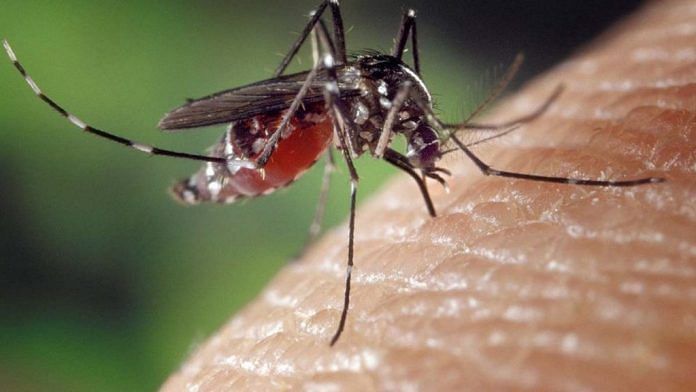Bengaluru: A team of researchers from Kenya, the UK and South Africa has discovered a microbe that can help tackle malaria without harming their carriers, the female Anopheles mosquitoes.
The microbe is called Microsporidia MB. Microsporidia, in general, are parasitic in nature. They are a kind of fungus or at least a close relative of the organisms.
The microbe lives in the guts and genitals of the mosquitoes, and seems to completely protect them from being infected by malaria, according to the researchers. However, just how this happens — does the microbe bolster immunity or work through metabolism? — remains under study.
The research was led by Jeremy K. Herren of the International Centre of Insect Physiology and Ecology (icipe) in Kenya. It was published in the journal Nature Communications Monday.
The researchers found Microsporidia MB in only about 5 per cent of the mosquitoes studied, but discovered that it helped completely block malaria infection among them.
“The data we have so far suggest it is 100 per cent blockage, it’s a very severe blockage of malaria,” Herren told the BBC. “It will come as quite a surprise. I think people will find that a real big breakthrough.”
Also Read: World Malaria Day: Why a disease thousands of years old continues to kill
An ancient threat
Malaria is a potentially life-threatening disease, but both preventable and curable. It continues to constitute a heavy disease burden in low- and middle-income countries. According to the Indian government’s National Health Portal, 87 countries saw a combined 21.9 crore malaria cases in 2017. India is one of the worst-affected countries, accounting for around 4 per cent of the annual global case tally.
The disease is caused by Plasmodium parasites, with the Anopheles females serving as carriers.
As it’s next to impossible to prevent mosquitoes from coming in contact with human populations, many new therapies have focussed on preventing the insects from getting infected or infecting humans in turn. These include experiments in genetically altering mosquitoes.
The new microbe, however, doesn’t require extensive lab work and genetic modifications — it can simply be released en masse into the wild for transmission among mosquitoes. It can be passed from males to females or vice-versa through sexual intercourse, and also from mother to offspring.
The method also does not kill mosquitoes, an approach that has caused slight alarm among ecologists in the past.
However, for mosquitoes to achieve a herd immunity of sorts, at least 40 per cent of the population needs to host the microbe for it to have any effect on malaria statistics among humans.
Also Read: Malaria still a big threat to Indians. Can’t afford to divert all resources to Covid



